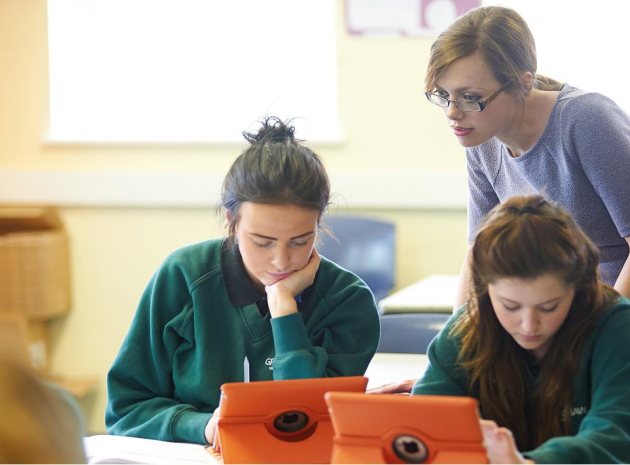Our school has been well supported by the Teacher Development Trust in developing effective evaluation tools. Thomas Guskey’s five levels for evaluating the effects of professional learning provided us with the framework within which to gauge the effects of Professional Growth in the classroom and on student learning. From the simple capturing of participation reaction at level one, to the far trickier task of measuring the effect on student learning at level five – at Greenshaw, evaluation of training is increasingly at the forefront of everyone’s thinking.
Growth in action
Two case studies help to illustrate what the impact of the school’s Professional Growth programme looks like in the classroom, and how different teachers from different subject areas are making use of the new knowledge they acquire in their learning communities to improve their students’ learning and provide answers to their enquiry questions. Steve Trafford is a fourth year English teacher who identified the memory for learning community as the most likely to help him better meet the demands of increasingly rigorous closed-book literature examinations, where students are required to retain much more knowledge of the texts than had previously been the case with the old specification.
“I really enjoyed the memory for learning module,’ Steve explains. ‘Looking at what cognitive scientists had to say about the way our memories work really helped me to shine a light on what kinds of activities would be most conducive to successful student learning, both within individual lessons and across schemes of work. Gaining a better understanding of the limits of students’ working memories was also incredibly useful in identifying why certain activities were more likely to work than others.
“My primary focus was on helping students remember quotations, core vocabulary and important aspects of plot, characterisation and context. I used frequent low-stakes quizzing as well as spacing and interleaving of topics in order to help the students retain their knowledge. I evaluated the outcomes at the end of the year through a mixture of a final test, student voice survey and looking at their extended written responses.
“The results were very positive: although students initially found some of the techniques I had used unpalatable, it was clear that they had remembered many of the quotations and much factual information, and were able to use these in their closed-book mock exam to develop really analytical essays. In addition, when comparing their work with previous classes, I found that they had a much more secure knowledge of the text and its characters, and were therefore able to successfully navigate more complex analytical tasks without overloading their working memory.”
Beyond learning
The Professional Growth programme is having an impact on the way that teachers think about and plan for their students’ learning across a range of subjects, with teachers applying the knowledge from their communities to the context of their pedagogy. Psychology and sociology teacher Melissa Downie was part of the metacognition learning community and the strategies and approaches she engaged with in the sessions she attended helped her to find ways to get her students to think more carefully about their processes of their own learning and how to make them better.
Melissa had found that getting students to reflect upon their own performance was difficult but worthwhile. “Learning about metacognition has really helped me to understand how to get students to manage their learning in more effective ways. In sociology, students often find the extended questions particularly challenging. One technique I have been trialling is to encourage students to think consciously about their own cognitive approaches as they write, such as through modelling the steps involved in constructing an answer out loud. This has really helped my students to better link their prior knowledge with the theory and to develop their overall evaluative skills.
“Initially many of the students struggled, but after only a few lessons, I saw a real difference in the way that they approached the longer writing tasks. Once students understood what types of questions they needed to consider when analysing and constructing their answers, they were able to do so more independently. Many expressed how much it had helped them to understand what is required and how to do it. The metacognitive strategies I have learned have not only helped my students get better at answering extended questions, but have also improved my ability to teach the skills of evaluating using theoretical perspectives.”
Professional Growth is now in its third full year with a number of new developments since September, including new learning communities on assessment, mindset and extended writing, as well as the opportunity for members of staff to pursue more independent enquiries linked to whole school student need. The online research hub and refinements to the appraisal process will help to continue to best meet the needs of both the staff and the students and to make best use of the resources available to the school.
About the author
Philip Stock is assistant headteacher at Greenshaw High School (www.greenshaw.co.uk), responsible for teaching and learning and assessment, and professional development. For further information on the Teacher Development Trust’s CPD Quality Audit visit www.tdtrust.org/cpd-quality-audit or follow the Teacher Development Trust on Twitter @TeacherDevTrust.









